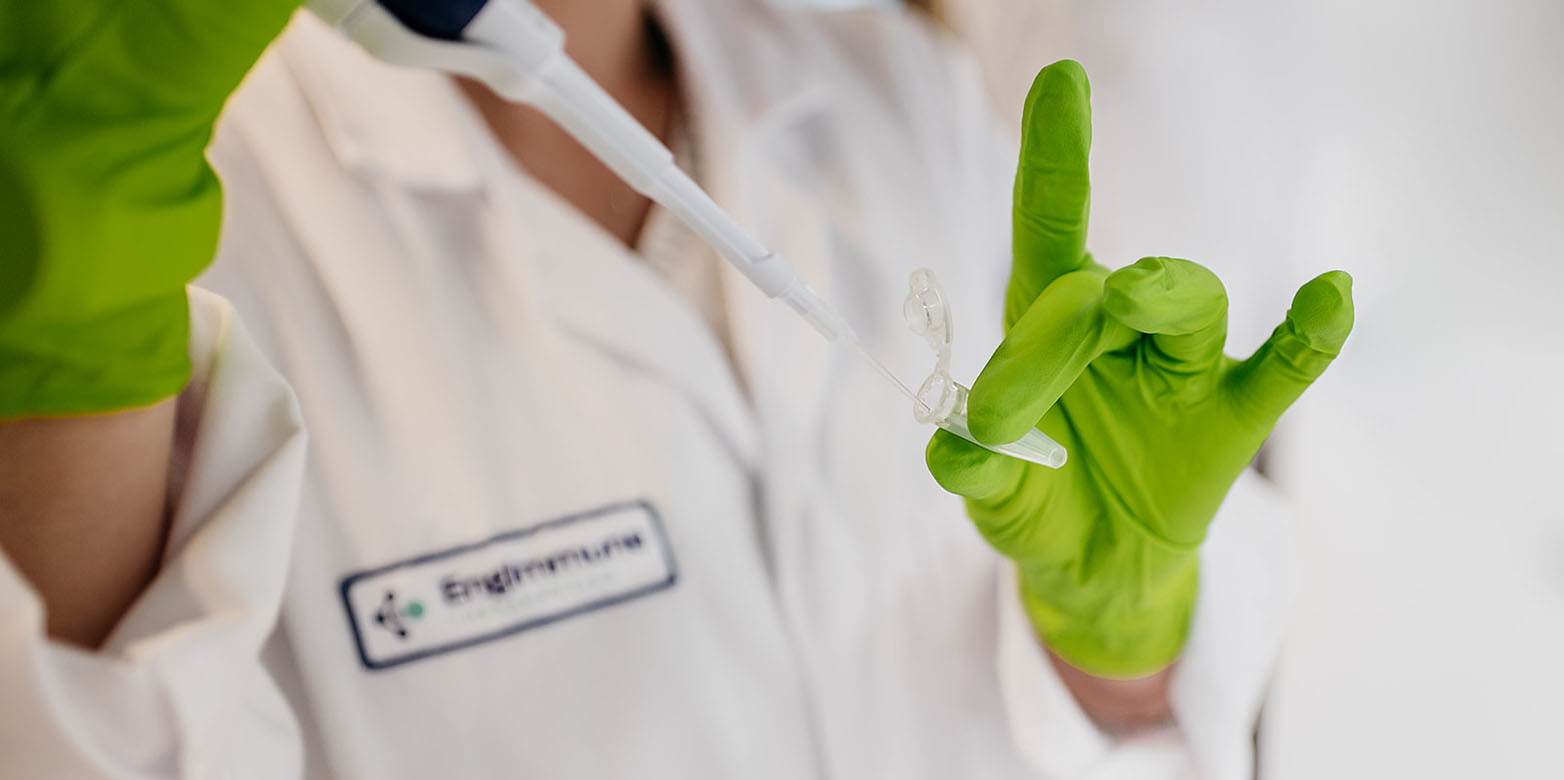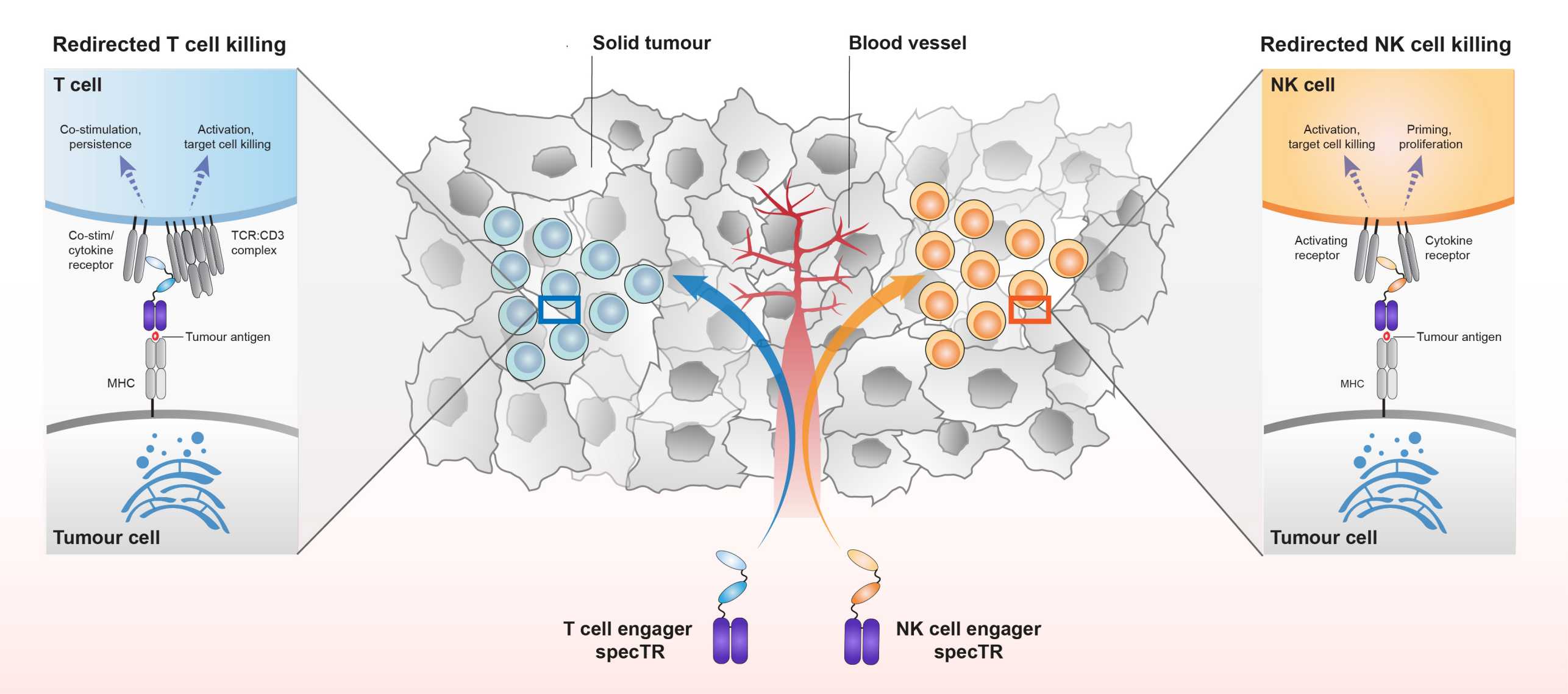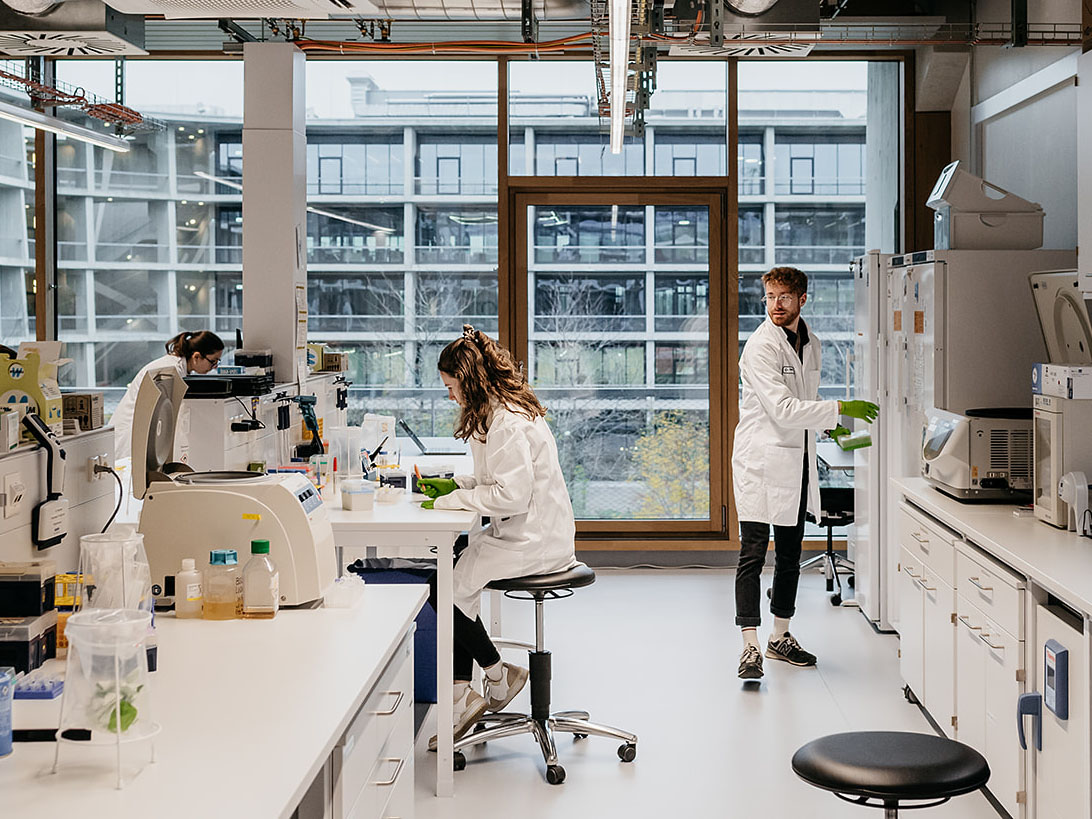Redirecting immune cells against cancer
ETH spin-off Engimmune Therapeutics has developed technologies to engineer T-cell receptors (TCRs) which are part of immune cells. Guided by machine learning, the technologies enable the development of TCR drugs that specifically target solid tumours. This emerging therapeutic approach is scalable and less costly than other modalities such as cell therapies.

Rodrigo Vazquez-Lombardi, CSO and co-founder of Engimmune Therapeutics and CEO Lars Nieba gave us an update on their latest achievements.
Founded in 2021, Engimmune Therapeutics engineers soluble TCRs for use to address the high unmet medical need of advanced solid cancers. TCRs are normally found on the surface of T cells but can be repurposed to make soluble drugs akin to monoclonal antibodies. Different to monoclonal antibodies, soluble TCRs can recognise intracellular targets that make up about 90% of the human proteome.
“It is very difficult to engineer soluble TCRs that bind a tumour antigen very strongly but that have no safety liabilities. It’s like trying to find a needle in a haystack.”Rodrigo Vazques-Lombardi, CSO and Co-Founder Engimmune Therapeutics
An emerging approach to target cancer cells
Traditional targeted immunotherapies engage antigens on the surface of tumour cells, which account for 10-15% of the human proteome. However, many tumour antigens are inside the cell and therefore not reachable by such approaches.
This is where soluble TCRs provide a targeting advantage: by recognising small peptides derived from intracellular antigens that are processed and displayed on tumour cells. “Our approach is both very promising and technically challenging”, says Rodrigo. “It is very difficult to engineer soluble TCRs that bind a tumour antigen very strongly but that have no safety liabilities. It’s like trying to find a needle in a haystack.”
How do the technologies work and what is unique about them?
Engimmune Therapeutics’ technologies enable them to display hundreds of millions of TCR variants. Rodrigo adds: “We select them based on how strongly and specifically they recognise a tumour antigen. Moreover, we can also sequence them to get the identity of the TCRs and generate large data sets.” The data is then used to create machine-learning models that can distinguish between good and bad TCRs. Essentially, this procedure enables the startup to screen for very specific TCRs both in the lab and on the computer, which massively increases their chances of success.

The technologies coupling protein engineering and machine learning were initially developed in Professor Sai Reddy’s lab at ETH. Over the past 18 months, Engimmune’s team has built on this foundation to develop additional technologies that not only improve the binding strength and specificity of soluble TCRs but also enhance their manufacturability, expand their function, and expedite their safety screening.
“Our approach is also unique in that we not only engineer the targeting portion of the soluble TCR drug but also the portion that redirects immune cells for tumour killing.”Lars Nieba, CEO Engimmune Therapeutics
Lars adds: “Our approach is also unique in that we not only engineer the targeting portion of the soluble TCR drug but also the portion that redirects immune cells for tumour killing. Our team has developed technologies in which such portions, also called immunoligands, are designed in multiple configurations and screened at high throughput. This opens the possibility of engineering soluble TCRs in a biology-driven manner, including adding novel functionalities with potential in autoimmune disease, which is a very exciting prospect.”
An added benefit of the new approach is the cost aspect. Related TCR-based cell therapies are extremely costly and difficult to scale. By contrast, soluble TCRs are an off-the-shelf product that reduces the cost of manufacturing and time-to-patient dosing significantly.
What are the next steps?
Last year’s seed financing round brought 15.5 million Swiss Francs with Switzerland-based Pureos Bioventures and Denmark’s Novo Holdings as the main investors. This allowed Engimmune Therapeutics to validate its technologies and advance its oncology pipeline closer to the clinic. They are targeting clinical entry with their lead program across multiple cancer indications in late 2025 and are currently engaging with investors, pharma partners and biotech companies.

Contact/Links:
external pageEngimmune Therapeutics
Do you want to get more "News for Industry" stories?
external pageFollow us on LinkedIn
Are you looking for research partners at ETH Zurich?
Contact ETH Industry Relations
ETH spin-offs: facts and figures
Since 1973, 540 spin-offs have been founded at ETH Zurich. ETH transfer, the technology transfer office at ETH Zurich, supports recognized ETH spin-offs in the founding process and in their first years of operation.
With the help of the Pioneer Fellowship Programme, funded by the ETH Foundation, young researchers can develop innovative products and services based on their scientific work at ETH Zurich. A Pioneer Fellowship is awarded to young ETH entrepreneurial minds intending to develop a highly innovative product or service to be exploited commercially and/or for the benefit of society.
Offers for entrepreneurs at ETH
Press release ETH spin-offs January 2023: Digital twins, new cancer treatments and three unicorns
